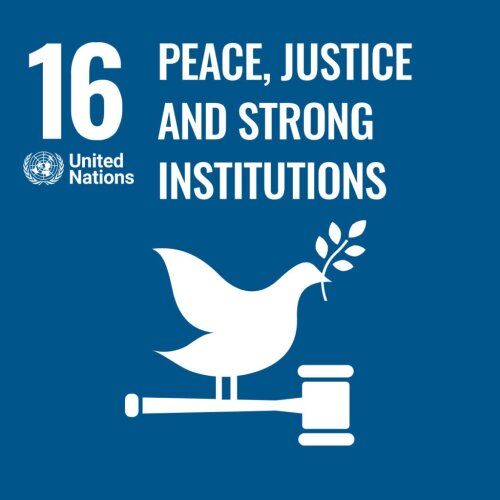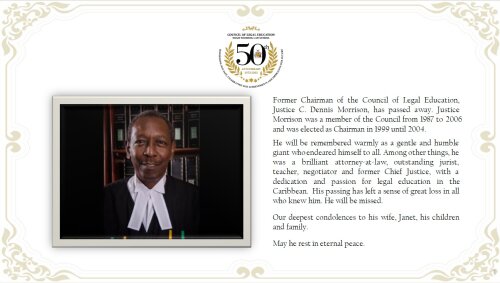Best Immigration Lawyers in Trinidad and Tobago
Share your needs with us, get contacted by law firms.
Free. Takes 2 min.
Or refine your search by selecting a city:
List of the best lawyers in Trinidad and Tobago
About Immigration Law in Trinidad and Tobago
Immigration law in Trinidad and Tobago governs the entry, stay, and exit of foreign nationals. It aims to regulate the flow of immigrants and ensure national security while balancing humanitarian considerations. The system is managed by the Ministry of National Security alongside the Immigration Division, and involves various procedures for temporary visitors, students, workers, and those seeking permanent residency or asylum. Understanding the nuances of these laws is crucial for anyone looking to navigate the immigration process within the country.
Why You May Need a Lawyer
Engaging a lawyer in immigration matters can be crucial for several reasons:
- Understanding Complex Regulations: Immigration laws can be intricate and difficult to interpret.
- Application Processes: A lawyer can guide you through the requirements for visas and permits.
- Dealing with Rejections: If your application has been denied, legal counsel can help appeal the decision.
- Facing Deportation: Representation is crucial if you are at risk of being deported.
- Asylum Applications: Lawyers can help with the complicated procedure of seeking asylum.
Local Laws Overview
The Immigration Act is the primary legal framework regulating immigration in Trinidad and Tobago. It outlines categories of admissible and prohibited immigrants, and specifies criteria for entry permits, residency, and deportation processes. The Citizenship Act explains the rules for acquiring citizenship, while the Trafficking in Persons Act addresses human trafficking issues. Notably, the laws emphasize compliance with international obligations and human rights standards.
Frequently Asked Questions
What types of visas are available in Trinidad and Tobago?
Visas available include Tourist, Student, Work, and Transit visas. Each has specific eligibility criteria and duration of stay.
How can I apply for permanent residency?
Permanent residency requires applications through the Immigration Division, often needing proof of long-term residence, employment, or family connections in the country.
What is the process for acquiring citizenship?
Citizenship can be obtained by birth, descent, registration, or naturalization, subject to fulfilling residency and other legal requirements.
What steps should I take if my visa is about to expire?
Apply for an extension or renewal with the Immigration Division before expiration to avoid being classified as an illegal immigrant.
Can I work in Trinidad and Tobago on a tourist visa?
No, employment on a tourist visa is prohibited. A work permit is necessary for foreign nationals seeking employment.
What are the consequences of overstaying my visa?
Overstaying may lead to fines, deportation, or being barred from re-entry. It's crucial to maintain lawful status at all times.
How can I appeal a rejected visa application?
You can submit an appeal through the Immigration Division, often requiring additional documentation or a legal representative to strengthen your case.
What is the procedure for asylum seekers?
Asylum seekers must apply to the Refugee Unit of the Immigration Division and undergo a refugee status determination process.
How does family sponsorship work?
Certain family members of Trinidad and Tobago citizens or residents may be eligible for sponsorship, contingent upon meeting specific criteria.
Is dual citizenship permitted in Trinidad and Tobago?
Trinidad and Tobago allows dual citizenship under certain conditions, primarily when acquired by descent or birth abroad.
Additional Resources
Consider contacting the following resources for more information or assistance:
- Ministry of National Security - Immigration Division: Manages immigration applications and inquiries.
- Refugee Unit: Assists individuals seeking refugee status.
- Legal Aid and Advisory Authority: Provides legal assistance to those unable to afford it.
- International Organization for Migration (IOM): Offers support and advisement on migration issues.
Next Steps
If you seek legal assistance regarding immigration in Trinidad and Tobago, consider the following steps:
- Consult with a certified immigration lawyer to review your situation and provide guidance on the best course of action.
- Gather necessary documentation pertinent to your immigration status or application.
- Attend scheduled consultations prepared with questions and take notes on legal advice given.
- Consider reaching out to organizations that offer support services for immigrants for further assistance or guidance.
Lawzana helps you find the best lawyers and law firms in Trinidad and Tobago through a curated and pre-screened list of qualified legal professionals. Our platform offers rankings and detailed profiles of attorneys and law firms, allowing you to compare based on practice areas, including Immigration, experience, and client feedback.
Each profile includes a description of the firm's areas of practice, client reviews, team members and partners, year of establishment, spoken languages, office locations, contact information, social media presence, and any published articles or resources. Most firms on our platform speak English and are experienced in both local and international legal matters.
Get a quote from top-rated law firms in Trinidad and Tobago — quickly, securely, and without unnecessary hassle.
Disclaimer:
The information provided on this page is for general informational purposes only and does not constitute legal advice. While we strive to ensure the accuracy and relevance of the content, legal information may change over time, and interpretations of the law can vary. You should always consult with a qualified legal professional for advice specific to your situation.
We disclaim all liability for actions taken or not taken based on the content of this page. If you believe any information is incorrect or outdated, please contact us, and we will review and update it where appropriate.
Browse immigration law firms by service in Trinidad and Tobago
Trinidad and Tobago Attorneys in related practice areas.
Browse immigration law firms by city in Trinidad and Tobago
Refine your search by selecting a city.















